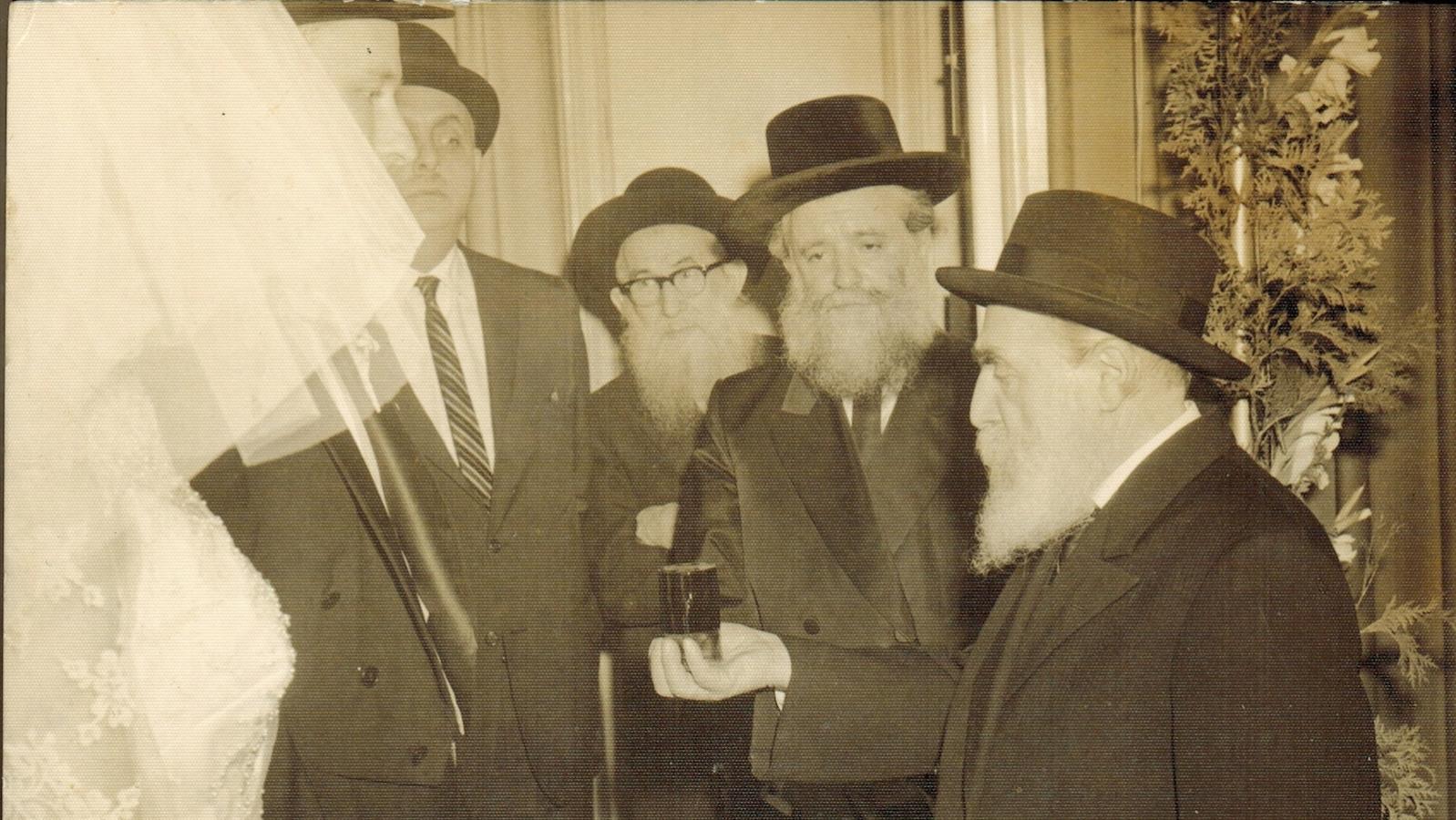Rabbi Moshe Feinstein was an American Orthodox rabbi widely regarded as the leading Jewish law authority of the 20th century. A prolific decisor of Jewish law, or halakhah, Feinstein confronted a range of novel questions posed by rapid developments in medicine and technology and his rulings in these matters impacted the lives of countless religious Jews, setting precedents that remain influential decades after his death. Feinstein was also renowned for his humility and for answering any question put to him. His obituary in The New York Times noted that his phone number was listed and that he would entertain queries from all callers.
Born in 1895 in Udza, a small city in the Minsk region of present-day Belarus, Feinstein was descended on his father’s side from the family of the Vilna Gaon. On his mother’s side, the family was said to trace its lineage back to King David. Feinstein was renowned for his genius even at a young age and was reputed to have studied the entirety of the Babylonian Talmud for the first time by the age of 19. It was said that by the time he died in 1986 at the age of 91, he had studied the whole of the Talmud more than 200 times. He reportedly reviewed the Shulchan Aruch, the medieval code of Jewish law, 300 times.
Feinstein became the rabbi of the Belarussian town of Lyuban, where he was celebrated for his brilliance and his piety. But antisemitism was growing in the Russian empire and, in 1937, he arrived in the United States, eventually assuming the leadership of Mesivtha Tifereth Jerusalem in New York, one of the oldest yeshivas in the city. He would go on to lead the Moetzes Gedolei Hatorah, known in English as the Council of Great Torah Sages, the supreme rabbinic authority of Agudath Israel, a haredi Orthodox umbrella group.
Feinstein’s legacy is principally his voluminous writings on Jewish law, much of which addressed issues rabbis had never faced before and thus set important precedents impacting Orthodox Jewish life in the United States. Several of his rulings staked out more lenient positions than had been previously allowed by Orthodox authorities, earning him considerable scorn from his less permissive peers. Beginning in the 1950s, he began to publish these responsa in a series known as Igros Moshe, or “Letters of Moshe.”
With your help, My Jewish Learning can provide endless opportunities for learning, connection and discovery.
In 1954, Feinstein ruled that the halachic requirement that milk production be supervised to ensure that no milk from non-kosher species was added did not apply in the United States, deeming government regulations sufficient to ensure the milk is kosher. The ruling effectively made milk available to Orthodox Jews across the country, obviating the need to import milk from Jewish dairies. Some Orthodox Jews never accepted this leniency and continued to use milk only from Jewish sources.
In 1964, just months after the U.S. surgeon general issued a landmark report on the dangers of smoking, Feinstein ruled that while it’s certainly preferable not to smoke, he did not consider it a violation of Jewish law, basing his conclusion in part on the fact that so many great Torah scholars were smokers. Some Orthodox authorities subsequently concluded that this stance was issued on the basis of the comparatively limited understanding of the dangers available at the time, and that his ruling is no longer operative since the health effects of smoking are now much better understood. (This point was made explicitly in a 2006 ruling by the Orthodox Rabbinical Council of America arguing that smoking was “unquestionably forbidden” by Jewish law.)
Among Feinstein’s most controversial rulings was his determination that couples unable to conceive naturally may use a sperm donor. Some rabbis considered this tantamount to sanctioning adultery and believed any child conceived through artificial insemination should be regarded as a mamzer, the term for children born from a forbidden sexual union who are barred from marrying other Jews. In the wake of his ruling, Feinstein’s books were reportedly burned in haredi Orthodox neighborhoods and his home was said to have been flooded with harassing phone calls. But Feinstein refused to back down.
Other rulings had an enduring influence on the culture of American Orthodoxy. Feinstein ruled that non-Orthodox Jews could be counted in a prayer quorum, or a minyan, in an Orthodox synagogue. He permitted the presence of Israeli flags in synagogues, deeming them secular national symbols rather than religious ones. And he permitted, albeit reluctantly, the marking of a girl’s bat mitzvah celebration but only in the home (as opposed to the synagogue), a position he later amended to allow a celebratory kiddush in the synagogue after the regular prayer service. Such celebrations are now commonplace in Orthodox communities.
Not all of Feinstein’s religious rulings were permissive. He strictly limited interactions between Orthodox and non-Orthodox Jews, barring Orthodox rabbis from sitting on rabbinic boards with Conservative and Reform rabbis, opposing Orthodox prayer services held in Conservative synagogues and banning attendance at a Jewish wedding held in a Conservative synagogue. Feinstein considered non-Orthodox rabbis heretics and deniers of Torah. He also forbade gatherings with Christian leaders, even when they concerned matters of a non-theological nature.
Some 50,000 mourners gathered for Feinstein’s funeral on the Lower East Side of Manhattan in March, 1986. After the service, his casket was flown to Israel for burial in Jerusalem. He was survived by his wife, Sima, and four children: Rabbis Dovid Feinstein and Reuven Feinstein, both of whom led yeshivas in the New York area, and daughters Faye Schisgal and Shifra Tendler.
Moshe
Pronounced: moe-SHEH, Origin: Hebrew, Moses, whom God chooses to lead the Jews out of Egypt.
Yerushalayim
Pronounced: yuh-ROO-shuh-LIE-yum (long i), Origin: Hebrew, Jerusalem.



